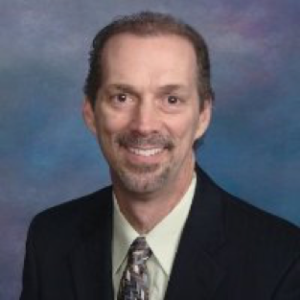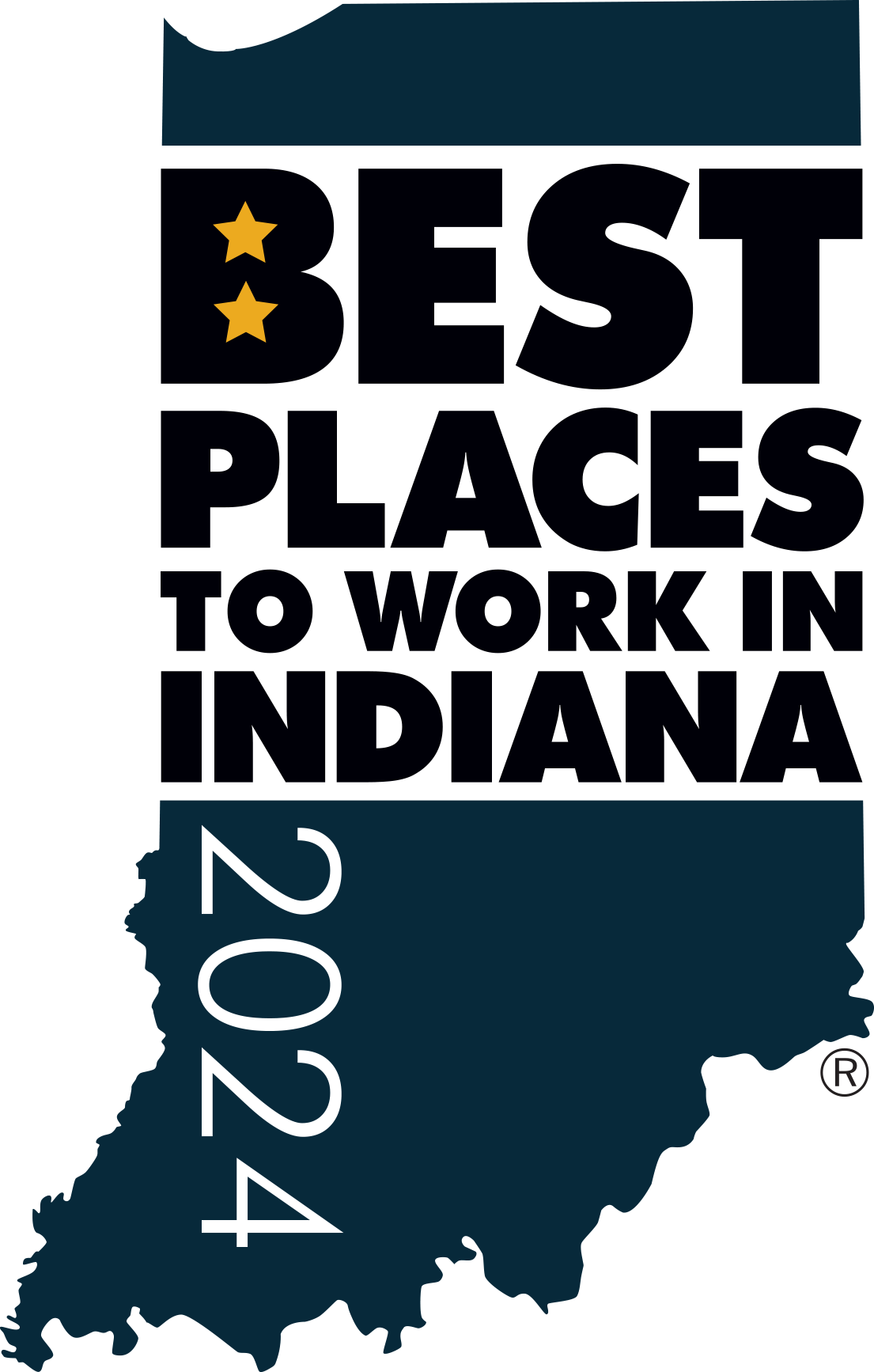Indy CFO Spotlight – Jay Bray

Deflecto Corporation Vice President of Finance/Accounting Jay Bray is a busy guy. He rolled into Four Day Ray Brewing in Fishers with a big smile, immediately after wrapping up a monthly operating call. A few days prior, he was in India; one of several trips there for him in 2017. When he’s not in India, there’s a good chance Jay’s in China. We’ve just ordered the Très Dip – tortilla chips with salsa, guacamole and ceviche.
KB: Jay, thanks for doing this.
JB: It’s an honor.
KB: Let’s start with you walking me through your career.
JB: I grew up in Bryan, Ohio, which is in the Northwest corner of the state. After high school, I went Bluffton University which was about ninety minutes from home. I took accounting in college because it was easy in high school, and I graduated in three years. Immediately after I graduated, I got my CPA, because in the mid-80s that’s what good accountants did; they got their CPA. My first job was with a fifty-employee company that was part of Bridgeport Brass. I spent a couple of years there and then left to become Plant Controller for a Tier 1 automotive supplier called Handy & Harman. They made air intake and fuel pump assemblies for multiple manufacturers, domestic and foreign. I was there for eight or nine years. Then I joined Honeywell. My first role at Honeywell as FP&A Manager for the Autolite Division in Fostoria, Ohio. Then I moved to Operations Headquarters in Perryburgh, Ohio as a Finance Operations Manager. My last role there was FP&A Manager for the FRAM Brand.
KB: Autolite and FRAM are iconic American brands. What do you remember from that part of your career and how did it shape you?
JB: I really developed an appreciation for how important it was for me to understand operations. Honeywell had their Shared Service Center Tempe, AZ, so I got to do all the business-focused stuff vs. transaction-focused stuff.
I worked with Directors of Supply Chain, Distribution, Purchasing… It’s like the doors were opened. I spent time looking at OpEx, material cost savings, program savings. The mantra at Honeywell was 6% year-over-year net productivity improvement, which really translated to margin improvement. How can we take 6% out of the cost structure? Year after year? We were selling spark plugs, oil filters and antifreeze. I learned about “The Triangle of Comparability”: budget, prior year and actual – are we making an improvement? In my last role as FP&A Manager for the FRAM brand, I reported directly to the Vice President of Marketing, with a dotted line to FP&A.
KB: So what was that like?
JB: I really struggled in the beginning. This was a sales and marketing driven organization, so I had to change my thinking. Once I did that, it became really fun. My VP would say, “Jay, take a look at this program…and don’t start with the gross margin.” We have this great idea…how do we sell it? Pricing strategy, placement strategy…the Ops guys say, “What does it matter which shelf it sits on?” Well, it makes a lot of difference. What’s on the package matters. The price matters. Let’s look at how much market share we can capture…that will translate to margin. How does it drive the brand? How does it impact the brand image? I learned that to Introduce a new filter, you first must focus on the product and what it means to the market. Then we’ll get to the other stuff. You’ve got to be open-minded. The financials are always important…but there are other big questions that need to be answered first.
KB: Ok, so you’re killing it at Honeywell; you’re really developing and growing as a business person. Why did you leave?
JB: We didn’t want to move to Danbury, CT. I was born and raised in Ohio, and we just didn’t want to move to the East Coast. The people, the culture and the Midwest mindset suit me and my family. I could manage my last couple of roles and still live in Ohio, but to continue advancing at Honeywell required a move to Danbury. And, I wanted to get into a private company. I wanted to try a private company.
KB: So fast forward, and now you’ve been at Deflecto for eight years. What’s the private company experience been like?
JB: The (management) layers are not there. It’s so much more nimble. It’s being able to talk to a couple of people and make a decision. It’s easier to make a positive impact. It’s not five discussions and the fourth person disagrees…saves so much time and effort. It’s a dialogue vs. “present and review and we’ll get back to you.” The international experience has been amazing. For example, in many ways the Chinese are no different than you and me. They want to work hard and they want something better for themselves and their family. The cultural learning has been just, “wow”. The perception of time is different in other countries…the perception of time in India is different than in China. When someone in China nods their head, it means they heard you; it doesn’t mean they agree with you.
I learned that I can’t impose my paradigm on them; rather, I can begin to make them aware that there is another paradigm. It may take me 1,000 conversations. But until I start those 1,000 conversations, they’re not going to get done. It’s part of my job to get them to understand a different mindset. Its’ all about action. Having those conversations is action.
KB: What do you look for in hiring people?
JB: I look for two things – the ability to learn and the initiative to learn. I frame my questions around trying to understand these things. I look for past initiative. I ask open-ended question that give people a chance to give me examples of how they’ve done these things. I want you to talk to me in the first person. You can’t do that if you don’t have the experience. It’s also easier to develop people who are open-minded; that can learn and want to learn.
KB: How do you like to lead people?
JB: I challenge my people: Stop thinking like an accountant! Get out of your office… go talk with the Ops Manager, Sales Manager, Engineering. What do the functions want to do? How do one function’s thoughts and ideas interplay with the others? One of my first mentors helped me develop this mindset and skill to help align what the functions are doing, or what they want to do. He taught me that no one in finance has the overt responsibility to do that, but somebody needs to. For example, a good Controller should be accounting one-third of the time and business two-thirds of the time. You gotta keep score. Did we win or lose? But then, what do we have to do to make the business better? And, not every Controller can pull that off.
KB: What ‘s your definition of excellence?
[Up to now, Jay’s answers have been rapid fire. But on this one, he pauses and thinks…]JB: Ok, here’s my definition: Have you done everything possible to achieve what is possible? It doesn’t matter the magnitude.
KB: That’s brilliant. It completely levels the playing field, regardless of the action or endeavor.
JB: Thank you. That’s what it means to me. It shouldn’t matter what you are doing.
KB: Ok, then what’s the difference between excellent and mediocre?
JB: When my kids were in school we paid them for their grades. An “A” was worth $10 and a “B” was worth $6. In time, the prices went up to $12 and $7. We also gave them a 401K match, meaning we paid them for the grades and then for every dollar they saved, we gave them a 25% match. If they took the money out of savings, I took back the match. They weren’t vested until they graduated!!!
KB: [I’m cracking up at this point.] So, how’d that work out?
JB: My Son is doctoral student at Penn State and fully funding his IRA on $30K a year.
KB: Wow.
KB: What do you have little patience for?
JB: Inability to make a decision. Not making a decision does not count as making a decision. You have to consciously say yes or no. Silence is not an answer.
KB: What quote do you think belongs on a billboard?
JB:
KB: What’s your favorite movie?
JB: The Blues Brothers. It’s just funny. I watch it 2-3 times a year. And, I have it memorized.
KB: What advice would you give your younger self?
JB: Be more open-minded with people and ideas and new things. Both professionally and personally.
KB: Jay, thank you for your time and the insights.
JB: Awesome.

